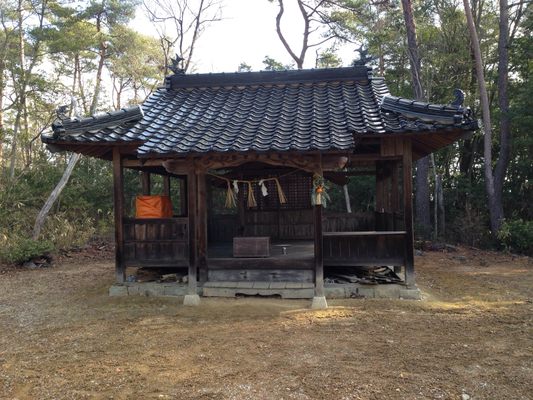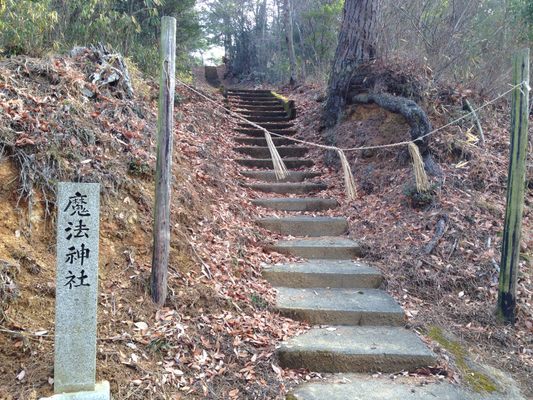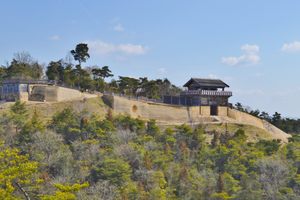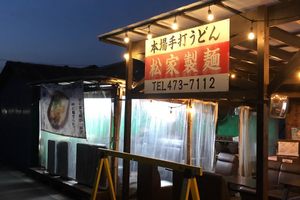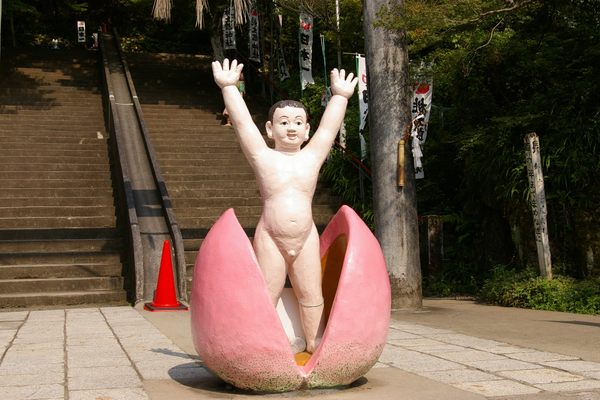About
In Japanese, the word mahō means “magic” and typically refers to the Western concept of wizardry and witchcraft, as opposed to such words as majinai or jujutsu which are reserved for the more traditional, divination-or curse-based sorcery.
So while the unusual name of Mahō Jinja in the city of Sōja translates to “magical shrine,” it is not actually a sanctum of sorcerers—though an atypical place of worship nonetheless.
On a hilltop deep in the forest of Okayama Prefecture, a historic province known for its demon legends that inspired Japan’s most famous folk tale, the shrine sits all but forgotten, without even the torii arch or lion-dog statues found in most shrines.
Mahō Shrine is dedicated to Mahō-sama, a local form of the legendary raccoon dog Kyūmō-danuki. Stowing away on a ship carrying Christian missionaries from the West, this demigod of ambiguous origin arrived in Japan in the late 16th century and settled down in the town not long after.
Though the raccoon dog stole food from local shops to live off, he did not cause much trouble otherwise and promised the townsfolk he would protect their cattle and horses and forewarn them of fires and burglaries. In return, the townsfolk built the shrine to honor him.
But how did he earn the epithet of “magic”? According to the historical texts in the local archives, this Mahō is a corruption of the name of a Buddhist goddess, Marici, with the hō “law, dharma” suffixed to it, unrelated to any magic.
Related Tags
Hidden Japan: Sado Island, Nara & Kyoto
Explore a different side of Japan.
Book NowCommunity Contributors
Added By
Published
September 26, 2023
